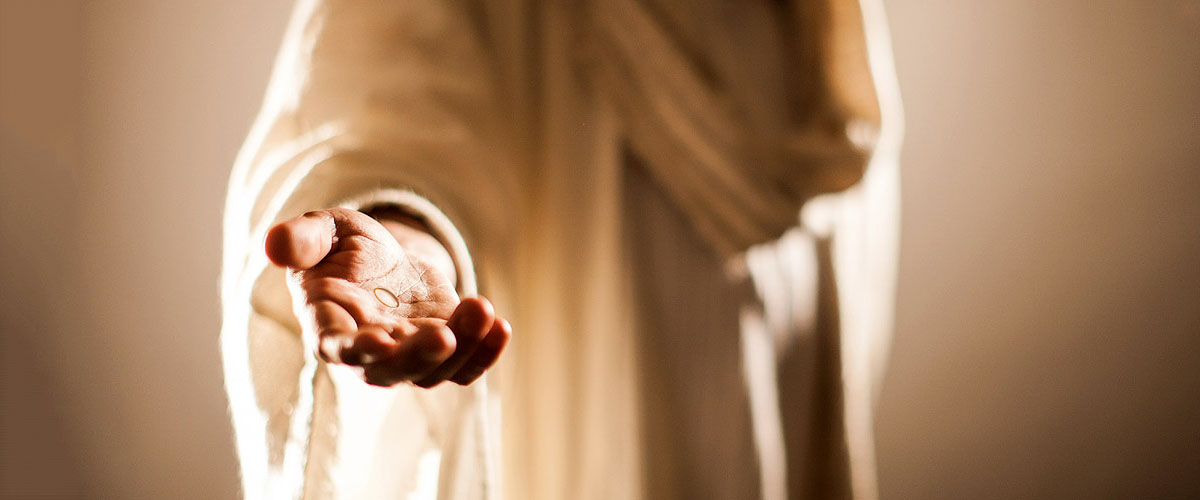There’s no such thing as a dead atheist. Atheist or agnostic, believer or unbeliever, all are appointed to die once and then appear before the judgment seat of Christ. Under those circumstances, every knee will bow and everyone will believe. But while atheism is non-existent in eternity, many still hold to it in this life.
Ideas of atheism vary between different cultures and languages, but generally, atheism is seen as the belief that there is no God or the lack of belief in a god. Richard Dawkins, the Grand Mufti of atheists, describes it this way, ‘We are all atheists about most of the gods that humanity has ever believed in. Some of us just go one god further.’ He is correct. Christians do not believe in Zeus, Vishnu or Thor. Dawkins does not believe in Christ.
Just because I have not found God in my small slice of knowledge…does not mean that God is not there.
To not believe in a specific god or group of gods is reasonable. I can even deny everything man has claimed about the divine, provided I allow room for the supernatural in some form. But to emphatically claim there is no God at all is unreasonable in the truest sense. Imagine a pizza that represented everything that can be known. Everything about the universe: about time, space and matter, and everything beyond that too. Now imagine how big a slice would represent everything you do know, or everything mankind knows collectively. Just because I have not found God in my small slice of knowledge, or in the slightly larger slice that represents all my kind, does not mean that God is not there. Reason dictates that any claim against the existence of God is a claim to absolute, exhaustive knowledge of all that can be known. Such a claim would clearly be nonsense.
The Burden of Proof
A simple way to express this argument is, ‘Absence of evidence is not evidence of absence’. Just because you personally have not found God, does not mean He’s not there. As the astronomer Carl Sagan said, ‘An atheist is someone who is certain that God does not exist, someone who has compelling evidence against the existence of God. I know of no such compelling evidence … we would have to know a great deal more about the universe than we do now to be sure that no such God exists.’
Secular philosopher Bertrand Russell challenged this view. He wanted to demonstrate that the burden of proof lies upon a person making a claim, rather than on those seeking to disprove it. If he were to assert, without offering proof, that a teapot orbits the sun somewhere in space, he could not, he said, expect anyone to believe him simply because he could not be proven wrong. But here Mr. Russell overlooked two things. Firstly, there is evidence for God. Secondly, the significance of the God claim is nothing like his claim of a cosmic teapot. No one has lived or died for a cosmic teapot. No one has endangered their life to translate or distribute sacred texts about a cosmic teapot. His teapot is not testified about by millions around the world. The discovery of his teapot, however significant, could have no meaningful or eternal impact on my existence. But if there is a God, that is a matter of extreme, eternal consequence.
It is not the lack of evidence that leads people to deny God.
Some may consider the evidence for God to be mostly supernatural. But the Bible declares that, while individually someone may be without a revelation of God, naturalistically speaking, everyone has been left without excuse. Any atheist who claims they have yet to see conclusive evidence for God, deliberately overlooks the incredible fine-tuning and irreducible complexity of creation.
God- Fearers
It is not the lack of evidence that leads people to deny God. Rejection of God is often born out of a preference, or desperate hope, for God not to exist. Paul writes about this, ‘For although they knew God, they did not honour him as God or give thanks to him, but they became futile in their thinking, and their foolish hearts were darkened.’ (Romans 1:21) What drives men to such foolishness? Peter gives us a clue in his second letter. Scoffers deliberately overlook the hand of God in creation, he says, because they also want to deny His coming judgement. If God is real and is the creator of all things, then it is to Him that we must answer. These atheists are like naïve infants with their hands over their eyes, saying, ‘You can’t see me!’ No wonder Scripture tells us, ‘The fool says in his heart ‘there is no God’’.
It is as if I insisted on perfect sunlight in order to see a solar eclipse.
Of course, this is not what an atheist will tell you. They will shift the burden of proof to the believer, demanding evidence for God. When the evidence we provide is supernatural or experiential, they will reject it, demanding more ‘solid’ evidence. To demand material evidence for the immaterial, or natural evidence for the supernatural is, of course, ridiculous, and should be called out for what it is, as Chesterton does in his book, Orthodoxy. ‘Suppose we were investigating whether angry men really saw a red mist before their eyes. Suppose sixty excellent householders swore that when angry they had seen this crimson cloud: surely it would be absurd to answer “Oh, but you admit you were angry at the time.” … It is as if I said that I could not tell if there was a fog because the air was not clear enough; or as if I insisted on perfect sunlight in order to see a solar eclipse.’
Chesterton concludes his argument by saying, ‘…supernatural things are never denied except on the basis either of anti-democracy or of materialist dogmatism’. By anti-democracy, he means the repressing of our voice. You might have experienced this. You tell your friend you have met God and they say, “I don’t believe you”, or, “How can you prove it?” Intentionally or not, they have behaved un-democratically. They are claiming your voice has no place in the conversation, that you are unqualified to speak of God. That you are predisposed towards being misled or mistaken. Ironically, the only people they will think qualified are those who deny the supernatural, those already devoted to materialist dogma. This dogmatism is demonstrated in the friend who replies, ‘That’s not possible’. Here they reveal their pre-existing faith that the supernatural cannot exist, which means any claim to have met God is, to them, untenable. Our witness is denied because they regard us as unqualified and our evidence is denied because it points to a God they already don’t believe in.
God-Haters
But there is another breed of atheist. These are the angry atheists, the God-haters, the misotheists. They rant and rave about God’s cruelty and neglect while concurrently claiming He doesn’t exist. The late Christopher Hitchens, an atheist, said, ‘Once you assume a creator and a plan, it makes us objects in a cruel experiment whereby we are created sick and commanded to be well, and over us to supervise this is installed a celestial dictatorship.’ Richard Dawkins, in his vitriolic book The God Delusion, says, ‘The God of the Old Testament is arguably the most unpleasant character in all fiction: jealous and proud of it; a petty, unjust, unforgiving control-freak; a vindictive, bloodthirsty ethnic cleanser; a misogynistic, homophobic, racist, infanticidal, genocidal, filicidal, pestilential, megalomaniacal, sadomasochistic, capriciously malevolent bully.’ Dawkins sounds like CNN describing Donald Trump!
Like many atheists, he clearly doesn’t understand the Bible or the God of the Bible. He claims that ‘Religion is about turning untested belief into unshakable truth through the power of institutions and the passage of time.’ But if that is true at all, it is most certainly true of atheism first. No belief is as untestable as belief in no God. And nothing has been so unwaveringly supported by institutions, from National Geographic and the BBC to the state education systems, as the notion of materialism and a world without a creator.
The misotheists have made themselves god, have judged God, and sentenced Him to death.
The misotheist becomes an atheist to punish God; to get back at Him in some way. Asked what he would say if he met God, comedian and atheist, Stephen Fry, said, ‘I would say, ‘How dare you…’’. It is this exalted view of self that is characteristic of misotheism. The original temptation was to be like God, knowing good and evil. The misotheists have made themselves god, have judged God, and sentenced Him to death. As Nietzsche said, ‘God is dead…And we have killed Him’. But God is not dead. He is not even sleeping.
Hope for Atheists
So why does God allow such blindness? Because blindness is what man has chosen. God told Ezekiel, ‘…you dwell in the midst of a rebellious house, who have eyes to see, but see not, who have ears to hear, but hear not’. The same is true today. Paul said all men were ‘without excuse’, but John says, ‘…men loved the darkness more than the light.’ Men choose ignorance, so what hope is there for atheists? The same hope there was for each of us. Remember, while we were still sinners, Christ died for the ungodly. None of us is righteous before God makes us that way. None of us is good by nature. Just as someone prayed for us, and God, in His kindness, drew us to repentance, so too if we pray, God can save our atheist friends.
The harvest is plentiful, but the labourers are few. Pray that God would send out labourers. Then lace up the boots of the gospel and exercise your beautiful feet!
‘How beautiful on the mountains are the feet of the messenger who brings good news, the good news of peace and salvation…’ (Isaiah 52:7)












